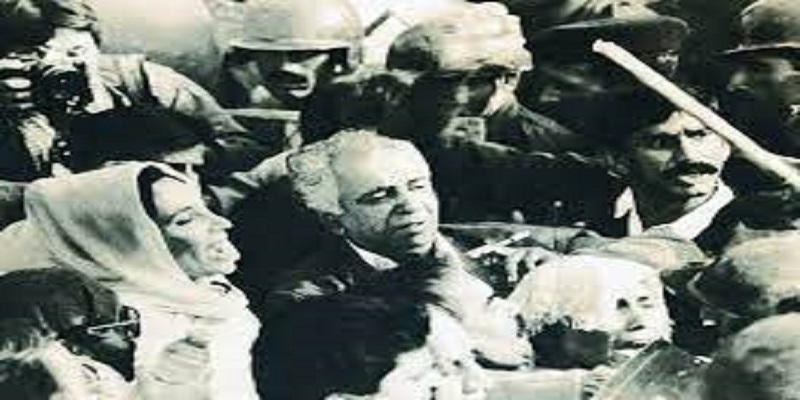Benazir Bhutto's Second Term Political Economic Reforms, and Foreign Relations
Benazir Bhutto's second regime as the Prime Minister of Pakistan, from 1993 to 1996, was a period marked by both challenges and accomplishments. This era was characterized by political struggles, economic reforms, and foreign policy developments. In this 1200-word essay, we will delve into the key aspects of Benazir Bhutto's second term, analyzing the political landscape, economic policies, foreign relations, and the challenges faced by her government.
Benazir Bhutto returned to power in 1993 after a tumultuous period of political instability in Pakistan. Her election victory marked a significant moment in the country's history as she became the first woman to lead a Muslim-majority nation. However, her second term was not without challenges.
The political atmosphere during this period was tense, marked by a confrontational relationship with the opposition. The main opposition party, led by Nawaz Sharif, accused Bhutto's government of corruption and mismanagement. The political rivalry between the two leaders escalated, contributing to a sense of instability within the country.
Benazir Bhutto's second term saw a focus on economic reforms aimed at addressing the country's economic challenges. The government implemented policies to liberalize the economy, encourage foreign investment, and privatize state-owned enterprises.
One of the significant economic achievements during this period was the establishment of the "Economic Revival Program." This program aimed to stabilize the economy, control inflation, and reduce the fiscal deficit. The government also took steps to promote the private sector, enhance tax collection, and attract foreign investment.
However, despite these efforts, challenges persisted. Pakistan faced economic difficulties, including a high level of external debt, fiscal imbalances, and a slow pace of economic growth. The economic reforms initiated during Benazir Bhutto's second term set the stage for subsequent governments to continue the process of liberalization and economic restructuring.
Benazir Bhutto's government placed a strong emphasis on foreign relations during her second term. One of the notable achievements was the improvement of relations with India. The Bhutto administration and the Indian government, led by Prime Minister Narasimha Rao, initiated a dialogue aimed at resolving long-standing issues, including the Kashmir conflict.
The 1994 Summit between Benazir Bhutto and Narasimha Rao in New York marked a significant diplomatic breakthrough. Both leaders expressed a commitment to finding peaceful solutions to the issues dividing the two nations. While comprehensive resolutions remained elusive, the dialogue laid the foundation for future diplomatic engagements between India and Pakistan.
On the international stage, Benazir Bhutto continued to navigate Pakistan's role in the global community. The country maintained its strategic alliance with the United States, particularly in the context of the evolving situation in Afghanistan. Pakistan's involvement in the Afghan civil war and its support for certain factions drew both criticism and support from the international community.
Despite the achievements, Benazir Bhutto's second term was marred by challenges. The political landscape was marked by allegations of corruption and mismanagement. The opposition, led by Nawaz Sharif, consistently accused the government of financial irregularities and nepotism.
Economic challenges, including a widening fiscal deficit and high levels of external debt, remained significant hurdles. The pace of economic reforms faced criticism for being slow, and the benefits of liberalization were not evenly distributed, leading to socioeconomic disparities.
Furthermore, the specter of ethnic and sectarian violence loomed over Pakistan during this period. The government struggled to address internal security concerns, including tensions in the province of Sindh. The Karachi operation, aimed at restoring law and order in the city, faced criticism for alleged human rights abuses.
Benazir Bhutto's second term as Prime Minister of Pakistan left a mixed legacy. While her government achieved notable successes in foreign relations and initiated economic reforms, the challenges and controversies cannot be ignored. The persistent allegations of corruption and the complex political environment contributed to a sense of instability.
The improvements in foreign relations, particularly the dialogue with India, showcased Bhutto's diplomatic skills. The economic reforms laid the groundwork for future developments in Pakistan's economy. However, the overall impact of these reforms was limited by the challenges faced during her tenure.
Benazir Bhutto's political career continued to be marked by highs and lows. Her second term, like her first, ended prematurely. In 1996, her government was dismissed over allegations of corruption and mismanagement. The alternating periods of civilian and military rule that followed reflected the ongoing struggle for stable governance in Pakistan.
Benazir Bhutto's second term represents a complex chapter in Pakistan's history. It highlights the intricacies of governance, the challenges of balancing political power, and the delicate nature of foreign relations in a region marked by historical tensions. The events of this era continue to shape the narrative of Pakistan's political landscape, serving as a reminder of the complexities inherent in the country's pursuit of stability and progress.

